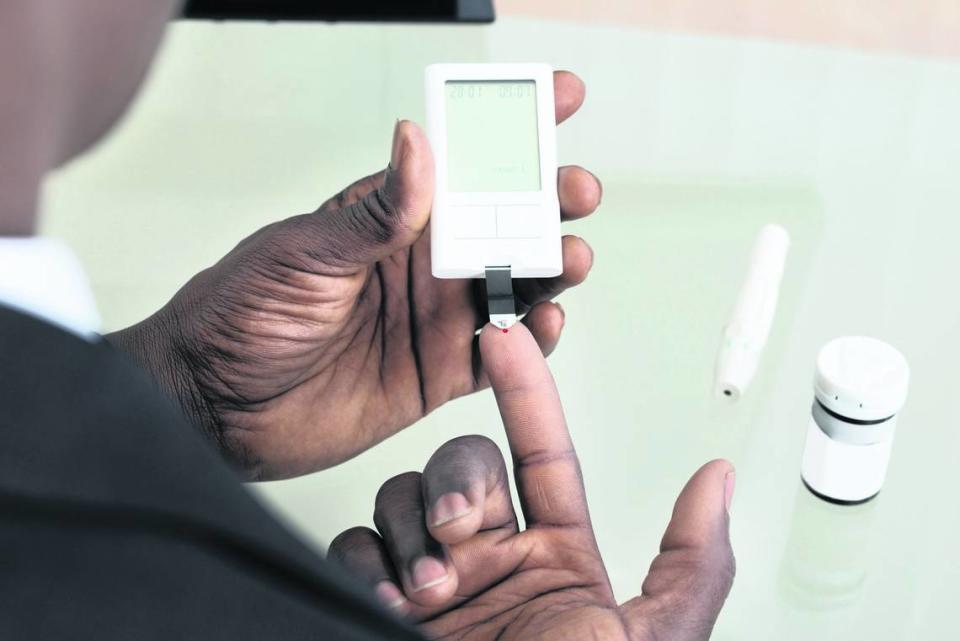Managing the depression that can come with diabetes can be equally difficult
The coronavirus pandemic, particularly with its surging U.S. cases, is playing havoc with people’s stress.
But diabetics can’t afford high levels of stress, which can cause blood sugar levels to skyrocket.
Diabetes is the seventh-leading cause of death in the United States with more than 34 million people, or more than 10 percent of the population, suffering from the condition, according to the Centers for Disease Control and Prevention (CDC).
People suffering from diabetes have an increased risk for severe illness from the virus that causes COVID-19, the CDC reports. A Reuters study also revealed that 40 percent of U.S. COVID-19 deaths occurred in people with diabetes.
African Americans and Hispanics suffer from diabetes at higher rates than non-Hispanic whites and have disproportionately suffered from COVID-19.

Some people, especially within the Hispanic community, falsely believe they do not have diabetes, said Matilde Lewis, a registered nurse and certified diabetes educator at Baptist Health South Florida. Instead, they feel they are only experiencing emotional diabetes, described as spikes in blood sugar levels triggered by an emotional event or crisis.
Myth of emotional diabetes
“That’s a myth,” Lewis said. “Just like you can’t be a little pregnant. The same holds true with diabetes. You either have diabetes or you don’t.”
Education is the first step in combating the myth of emotional diabetes, said Sonia Angel, a certified diabetes care & education specialist and licensed dietitian who is the coordinator for the Diabetes and Nutrition Center at Memorial Regional Hospital in Broward.
“I tell patients they are in control of their diabetes instead of allowing their diabetes to control them,” Angel said. “A lot of people go into denial and think it’s not that serious because they don’t have symptoms. But, when stressful situations come up, then they have to deal with it.”
When blood-sugar levels are out of control they may experience excessive thirst, frequent urination, headaches, unintentional weight loss and wounds that don’t heal, Angel said.
“They may associate that with the emotions that they are going through, but it’s really uncontrolled diabetes that they are not treating or never diagnosed,” Angel said.
Depression, denial and anger
Patients diagnosed with diabetes often experience a range of emotions including depression, denial, anger and guilt, Angel said.
“They falsely believe that only people who are overweight or eat poorly are diagnosed with diabetes,” Angel said. “That is a myth. So they may feel guilty and think they wouldn’t have diabetes if they had lost the weight they needed to lose or eaten better. That is not true.”
Although emotional diabetes is a myth, diabetes-related distress is a real problem. It is the emotional and behavioral changes caused by diabetes , which include multiple expectations such as healthy eating, exercising, and monitoring blood sugar levels to treat the condition.
“Diabetes-related distress is a part of diabetes,” said Dr. Rajesh Garg, director of the Comprehensive Diabetes Center at the University of Miami Health Systems. “Patients can be helped with all these factors to make it easier for them to cope.
“It has been shown that those with higher distress also have more complications from diabetes, higher blood sugar and need more medication.”
Emotional health tied to physical health
There also is a strong relation between the psychological health of the patient and their diabetes status, Garg said. Although the ADA has recommended that diabetic patients be screened for psychological health, it often isn’t done, Garg added.
“It is important for patients to talk with their physicians and be very honest about how they are feeling,” Garg said. “There are small things that can be done to improve or remove their stress.
“For example, many patients, especially these days, are struggling to pay co-pays. We don’t realize it until someone brings it up and says this is causing a lot of stress. There are always ways to find alternatives to reduce co-payments.”
During the pandemic, Lewis noted there has been a direct correlation to stressful eating for patients due to the anxiety of not being able to go outside and fear of becoming sick or making a loved one sick.
“During the past nine months, we’ve noticed patients have gained weight and their blood sugars have gone up,” Lewis said. “It is due to the stressful time that we are in. They are eating more or mindlessly eating in response to anxiety and stress while not being able to go to the gym or exercise.”
Although the gym may not be an option for some, Lewis suggests that patients go out for a walk when feeling stressed and wanting to eat. Also, try drinking more water and eating vegetables and foods with higher fiber.
If patients are depressed or having difficulty coping with their diabetes diagnosis, reach out to family and friends, join virtual support groups or seek counseling.
“One of the most important things is finding out how you are going to live with diabetes rather than falling into anger or denial,” Angel said. “It is not just what you eat. It is a lifestyle change.”

